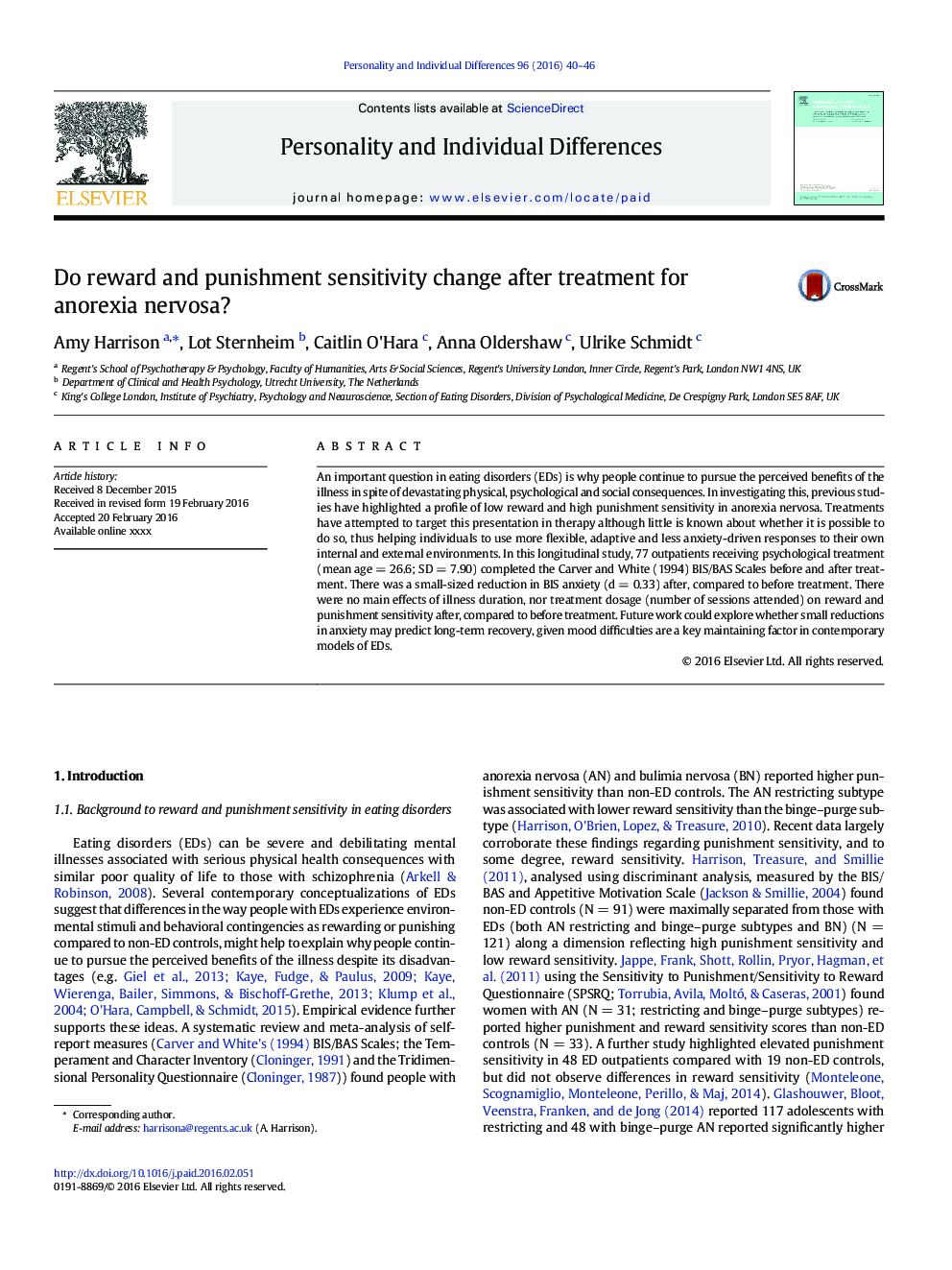| Article ID | Journal | Published Year | Pages | File Type |
|---|---|---|---|---|
| 7249997 | Personality and Individual Differences | 2016 | 7 Pages |
Abstract
An important question in eating disorders (EDs) is why people continue to pursue the perceived benefits of the illness in spite of devastating physical, psychological and social consequences. In investigating this, previous studies have highlighted a profile of low reward and high punishment sensitivity in anorexia nervosa. Treatments have attempted to target this presentation in therapy although little is known about whether it is possible to do so, thus helping individuals to use more flexible, adaptive and less anxiety-driven responses to their own internal and external environments. In this longitudinal study, 77 outpatients receiving psychological treatment (mean age = 26.6; SD = 7.90) completed the Carver and White (1994) BIS/BAS Scales before and after treatment. There was a small-sized reduction in BIS anxiety (d = 0.33) after, compared to before treatment. There were no main effects of illness duration, nor treatment dosage (number of sessions attended) on reward and punishment sensitivity after, compared to before treatment. Future work could explore whether small reductions in anxiety may predict long-term recovery, given mood difficulties are a key maintaining factor in contemporary models of EDs.
Related Topics
Life Sciences
Neuroscience
Behavioral Neuroscience
Authors
Amy Harrison, Lot Sternheim, Caitlin O'Hara, Anna Oldershaw, Ulrike Schmidt,
